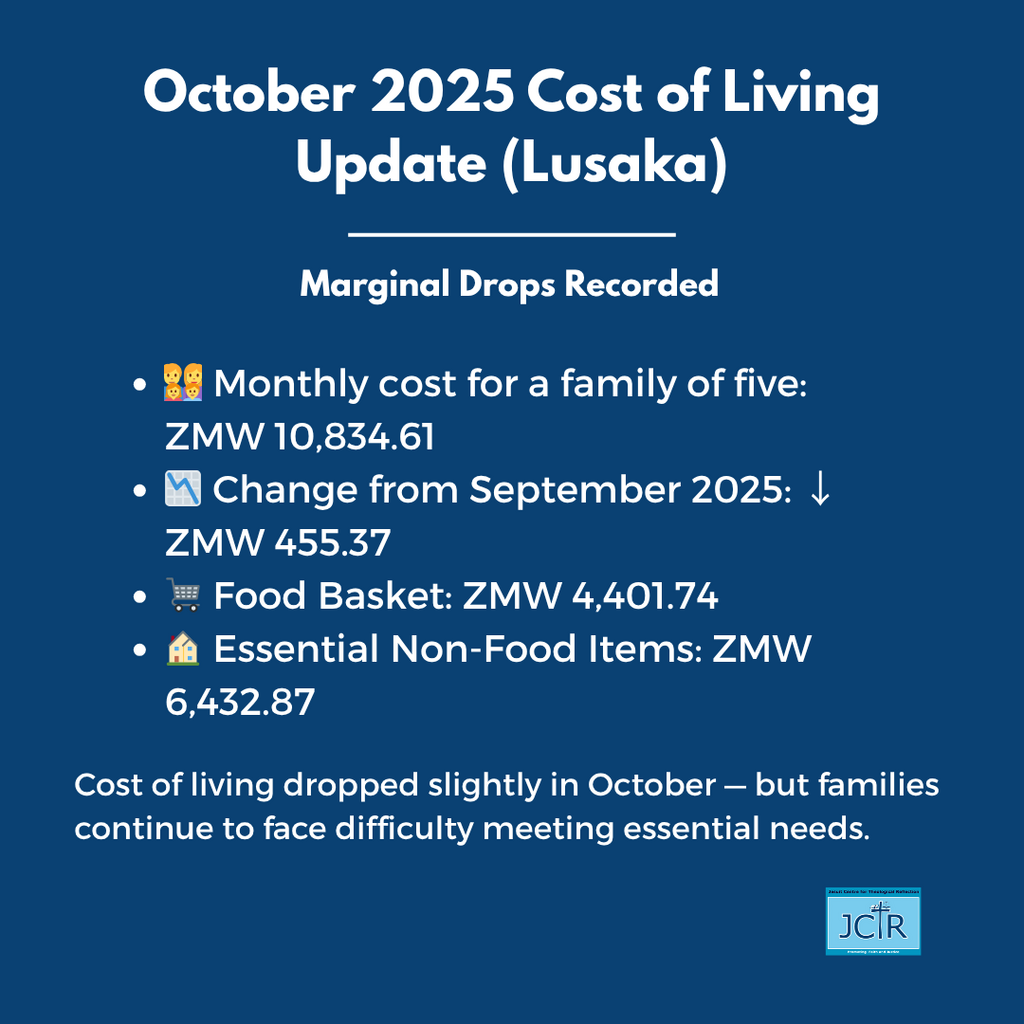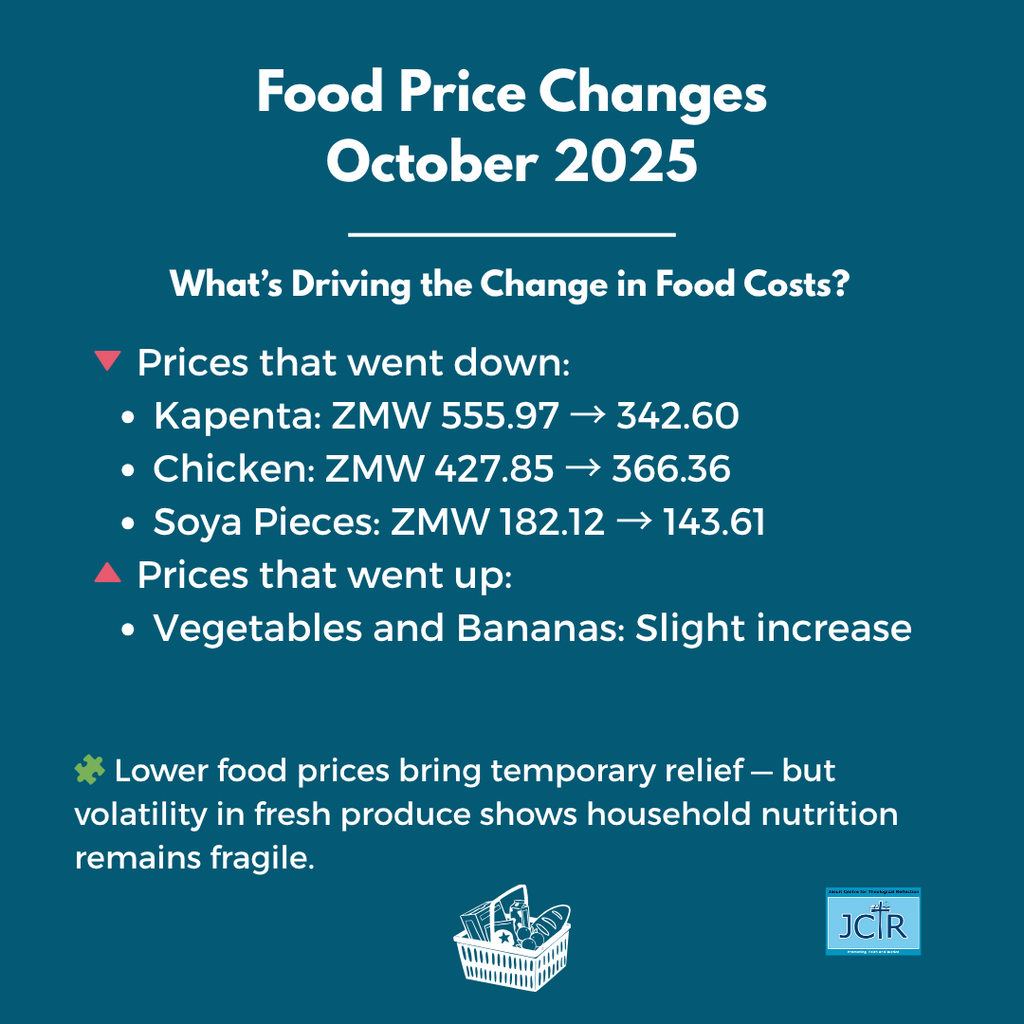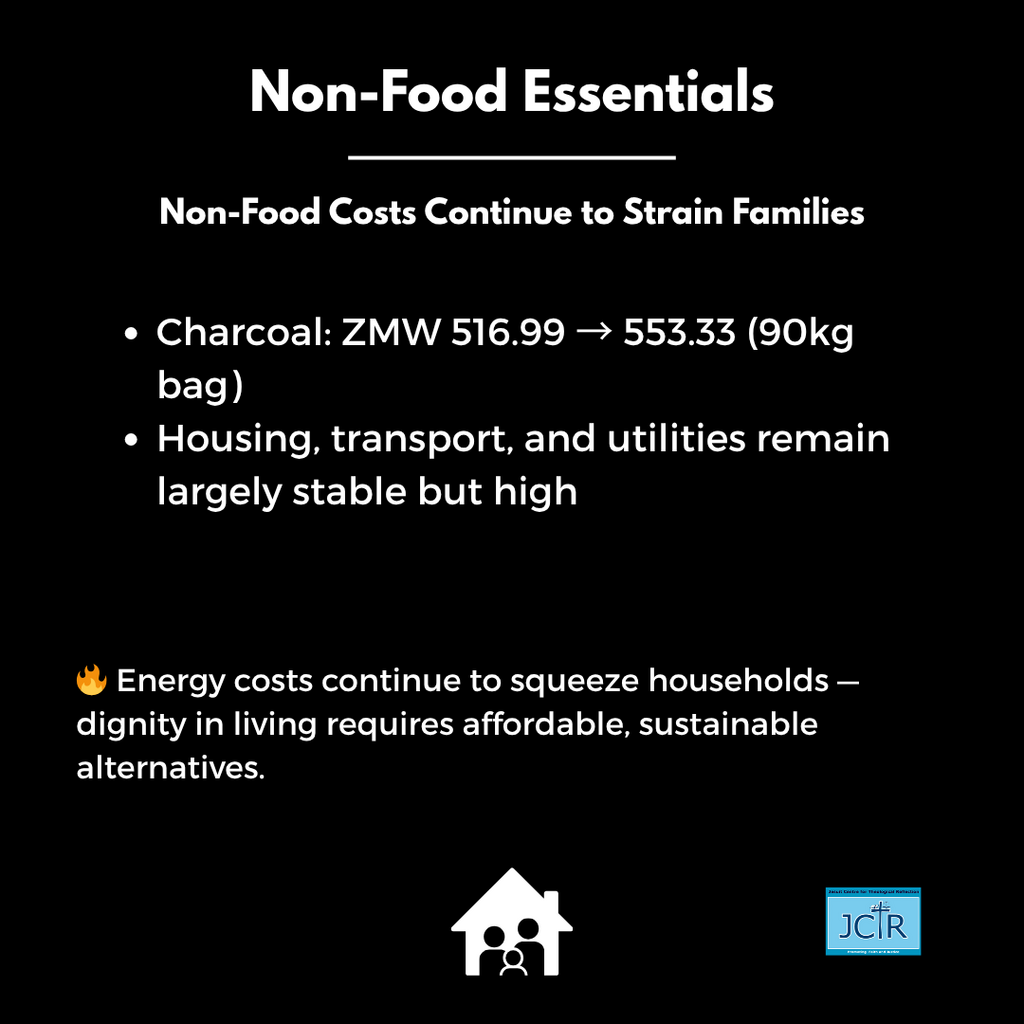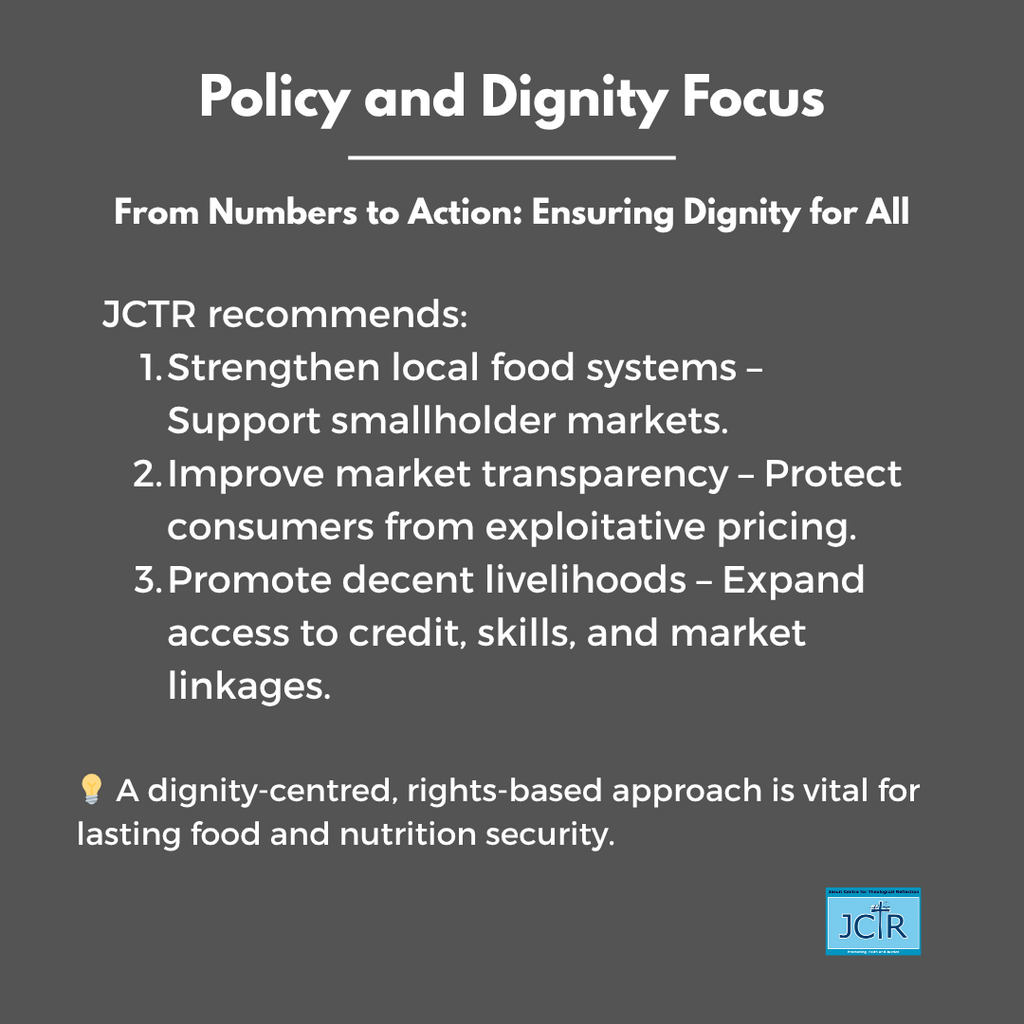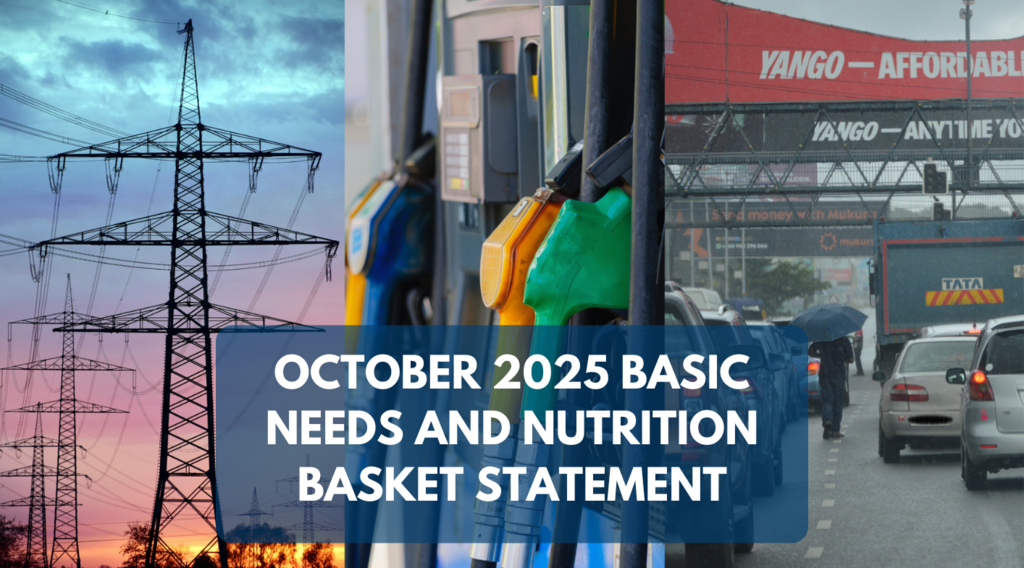
STATEMENT
NOVEMBER 4, 2025, LUSAKA, ZAMBIA – The Jesuit Centre for Theological Reflection (JCTR) Basic Needs and Nutrition Basket (BNNB) for Lusaka for a family of five stood at ZMW 10,834.61 in October 2025, decreasing modestly from ZMW 11,289.98 in September. This reduction was largely attributed to a drop in the cost of basic food items, which fell from ZMW 4,917.90 in September to ZMW 4,401.74 in October. Notable price decreases were observed in key commodities such as kapenta (reduced from ZMW 555.97 to ZMW 342.60), chicken (reduced from ZMW 427.85 to ZMW 366.36), and soya pieces (reduced from ZMW 182.12 to ZMW 143.61). However, some items, like vegetables and bananas, saw slight increases, indicating persistent volatility in fresh foods produce-pricing.
The cost of essential non-food items remained relatively stable, with a slight increase from ZMW 6,372.06 in September to ZMW 6,432.87 in October. Notably, charcoal prices rose from ZMW 516.99 to ZMW 553.33 for a 90kg bag, continuing to strain household energy budgets.
Zambia remains challenged by deep and widespread poverty, with many families vulnerable to shocks that erase minimal gains. Poverty is not merely a lack of income; it is exclusion from the conditions that allow dignified living. Households in urban areas continue to face a double squeeze: food prices for key items remain high, and non-food essentials continue to absorb a growing share of household income.
Even where annual inflation shows modest easing month-to-month, the level of prices recorded by the BNNB demonstrates that many families still cannot meet basic needs without reducing food quality or skipping meals — outcomes which hinder both nutrition and long-term poverty reduction.
Price levels that force households to choose between food, medicine, or school fees undermine that dignity, while sustainable food systems honour creation by supporting smallholder production, reducing waste, and promoting ecologically sound agricultural practices that secure long-term access to nutritious food. Moral principles, therefore, require that our policy response must be both practical — for instance, through cash or agricultural support — and ethical, that is, rights-based and dignity-centred.
The Jesuit Centre for Theological Reflection therefore makes the following recommendations:
Food and nutrition security and poverty reduction require systems that protect families, guarantee decent livelihoods, and preserve human dignity. Many Zambian households are still a long way from attaining a dignified standard of living. We call for collaborative action for better foods and livelihoods.
Issued by: Ms. Lukwesa Musonda – Social and Economic Development Programme Officer
For further clarifications, contact the Social and Economic Development (SED) Programme at the Jesuit Centre for Theological Reflection (JCTR) on 0955290410, or email info@jctr.org.zm and admin@jctr.org.zm. Address: Martin Mwamba Road, Plot 3813, Olympia Park, Lusaka. Postal: P.O. Box 37774, Lusaka – Zambia.
October 2025 BNNB Snapshot
